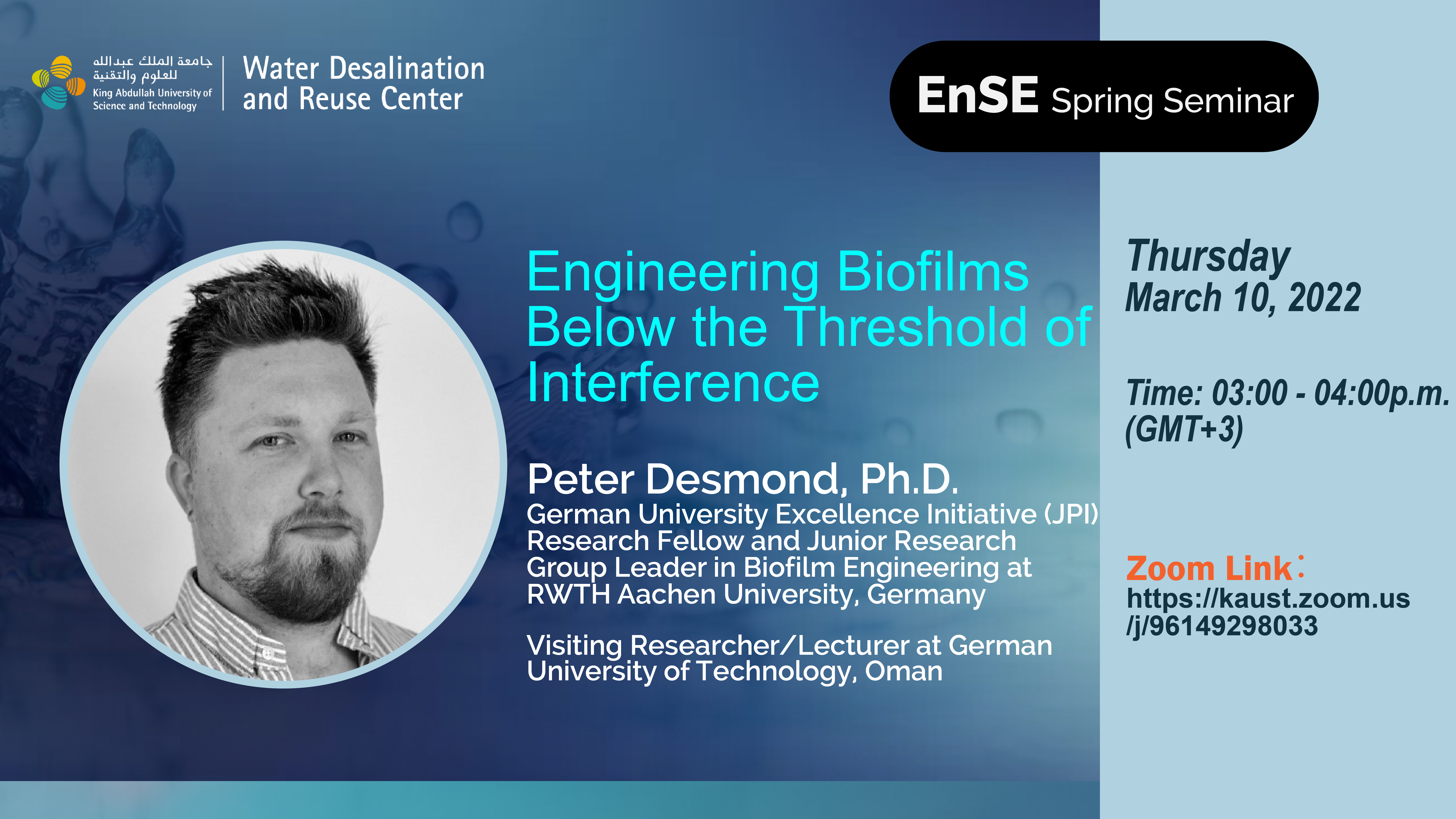



Abstract:
Biofilm development in MF/UF necessitates increasing the feed pressure to maintain water production and the need to apply chemical cleanings, and in ultimate cases untimely membrane replacement. Membrane cleaning and frequent membrane replacement represents a significant portion of operating expenditure (OPEX) and should be reduced to allow economic operation. Biofilm development during Gravity Driven Filtration (GDF) prompted the realisation that membrane filters could maintain a reasonable hydraulic permeability without complete removal of the biofilm under continuous dead-end conditions. This invited fundamental research investigation into factors determining the hydraulic resistance of membrane biofilms. A decade later, spatial distribution of extracellular polymeric substances (EPS) and resulting biofilm physical structure were identified as the key contributors to filtration resistance in low pressure membrane systems (MF/UF, GDM). In this seminar presentation, evidence will be presented on how the hydraulic resistance and mechanical stability of membrane biofilms can be lowered by modulating biofilm composition and physical structure via pre-treatment and operational processes, such as (i) feed water nutrient composition/concentration, (ii) transmembrane pressure (TMP) and (iii) cross-flow velocity (CFV), alone or in tandem. Consideration will be given to how the concept of “biofilm engineering” can be extended to other biofilm parameters such as mechanical stability to enable better management of recalcitrant biofilms in water engineering systems (e.g., pipelines and/or, cooling towers).
Bio:
Since 2021, Dr. Peter Desmond is a German University Excellence Initiative (JPI) research fellow based at RWTH-Aachen, Germany and Visiting researcher/lecturer at RWTH-daughter University, German University of Technology, Oman. At RWTH-Aachen, Dr. Desmond leads the Biofilm Engineering group (www.biofilmresearch.com), where research efforts focus on developing fundamental understanding of counter diffusional biofilm processes (e.g., mass transfer, biofilm initiation, structuration, mechanical stability) in membrane aerated bioreactors (MABRs) applied to wastewater reuse and bioresource recovery. At GU-Tech Oman, Dr. Desmond translates fundamental research findings from his group at RWTH into regional specific solutions for the Sultanate of Oman relating to (i) membrane-based desalination and fouling control (ii) produced wastewater treatment by biofilm-membrane hybrid processes, and (iii) biohydrogen production, in close cooperation with local utility providers (Majis Industrial Services S.A.O.C). Dr. Desmond receive his PhD from ETH Zurich in 2018 under the supervision of Prof. Eberhard Morgenroth at the Swiss Federal Institute of Aquatic Science and Technology. Before moving to RWTH-Aachen, Dr. Desmond was head of Research and Process development for MMS AG membrane systems, Switzerland where he led numerous international consultancy projects relating to industrial and produced water treatment using advanced membrane processes.